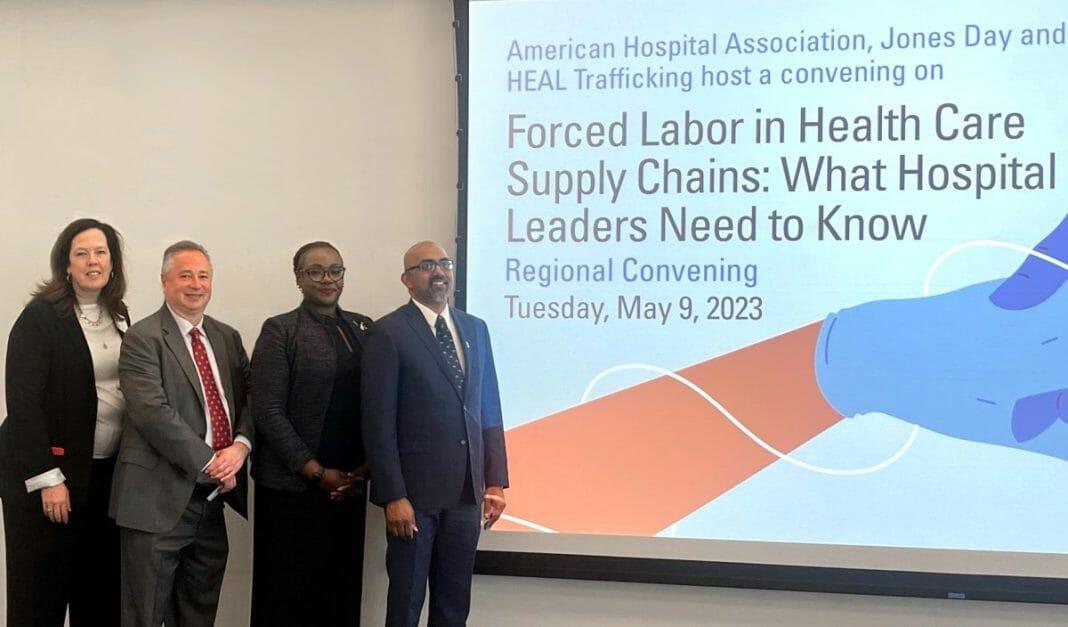Northwell Health has developed a new process to help identify signs of human trafficking within a given hospital’s extended, global supply chain. It presented this novel method at a regional meeting sponsored by the American Hospital Association’s Hospitals Against Violence Initiative, the Jones Day law firm and Health, Education, Advocacy, Linkage (HEAL) Trafficking.
The conference, held May 9 at Jones Day’s New York City office, was titled “Forced Labor in Health Care Supply Chains: What Hospital Leaders Need to Know.” Santhosh Paulus, MD, senior program director of the Northwell Health Human Trafficking Education, Advocacy, Response & Training Program; Wilonda Green, program manager; and Paul Kaufman, Northwell vice president and deputy general counsel, were all featured speakers at the conference.
As New York’s largest health system, Northwell takes a leadership role in addressing human trafficking not just in the region, but around the world. The health system works with the United Nations and the Global Strategic Operatives to combat human trafficking, and it is co-chair with the U.S. Department of Health and Human Services (HHS) on a new Public-Private Joint Forced Labor Working Group.
“As a physician, I provide care and take care of patients,” said Dr. Paulaus, who instituted protocols to screen hospital patients for human trafficking. “Medical professionals strive to save lives, and as a result, we require a number of supplies and resources in our emergency rooms, patient rooms and hospitals to ensure that we save as many lives as possible. What we do not often take into consideration is the importance of the lives that may have been lost as a consequence of the supplies we take for granted. Is one life more valuable than another?”
Dr. Paulus and Ms. Green discussed how the overwhelming global demand for certain health care supplies during the initial waves of the COVID-19 pandemic ultimately helped shine a light on the impact of forced labor in the health care supply chain. Recently, they participated in a pilot training program developed by HHS, through the National Human Trafficking Training and Technical Assistance Center, to help procurement professionals address forced labor in the medical supply chain. When signs of human trafficking are found in the supply chain, Northwell notifies its partners in government to address the issue.
Mr. Kaufman joined Jones Day attorneys Bethany Biesenthal, Taylor Goodspeed and Julia Feldman on a panel that discussed anti-trafficking laws and relevant trends in compliance and government enforcement from both the law firm and in-house attorney perspectives. The panel also discussed approaches to mitigating trafficking-associated risks.
“It was very positive to have representatives from the public and private health care sector come together with the goal of developing realistic, concrete steps to combat trafficking,” Mr. Kaufman said.
Northwell is committed to understanding, identifying and mitigating the impact of human trafficking globally and looks forward to its continued partnership with the attendees to the convening in this joint and important effort.
